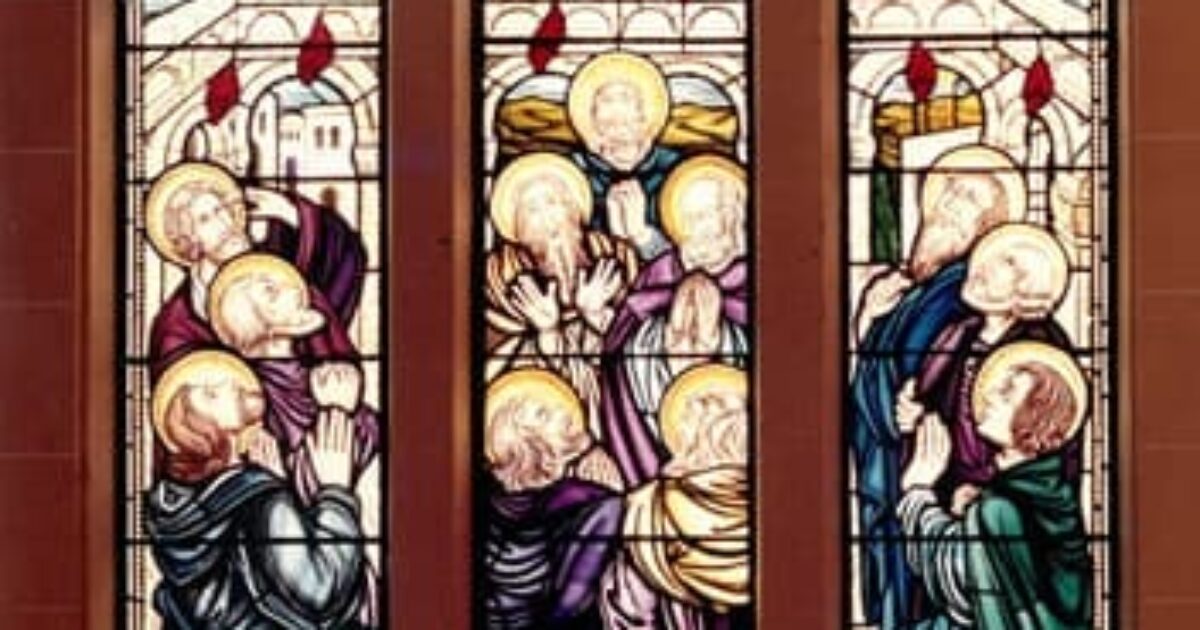Homily for Australia Day by Deacon Peter Doherty
19 February, 2024
Australians of all backgrounds share a great love of a story. Having a yarn around a campfire, chatting across a beer at the Red Lion[1] or sharing the day’s events with a meal across a dinner table, story-telling is intimately woven into the character of Country and the character of the Nation.
Story-telling binds us together and permits our individual stories and experiences to become part of a wider story.
We might ask ourselves therefore on this day; how many Australian stories have there been? The answer, to adapt a response from the late Pope Benedict XVI to another question[2], is this: there are as many Australian stories as there have been people living here on the continent of Australia:
- They are the stories that echo through time; the stories of those whose hands first caressed the ancient soil and whose faces first felt the ancient winds;
- They are the stories of the imprisoned, banished forever from their home country, only to find that what was meant to be their prison became for them the narrow gate to freedom;
- They are the stories of people whose homelands were devasted by war in Europe and Asia and who longed to build a home where war became a distant memory and where new beginnings became possible;
Anthropological studies and demographic analysis seem to suggest that upwards of 1.6 billion people have lived on the continent.[3] That’s 1.6 billion stories that make up the fullness of the Australian narrative. That’s 1.6 billion stories that are the foundation of the present Australian story. That’s 1.6 billion stories, the fullness of which, contribute to the shape, texture and contour of the Australian story that will unfold into the future.
The First Reading from Isaiah speaks into the shared sense that all Australians long for; in their own narratives, the narratives of their families and the wider narrative of Australian society:
- where fertile opportunities in education, dignified work and healthcare are possible for all;
- where the spirit of fairness and justice prevails not only in our personal and communal relationships, but where we recognise the need to overcome the legacy of historical injustices;
- where all people, all families, all communities, live in peace and security, from Tasmania to the Torres Strait; from Byron Bay on the east coast to Beagle Bay in the west;
The Second Reading from Paul’s first letter to the Corinthians, is today for us the recognition that our gifts make up much of our individual and collective Australian stories:-
The fullness of the Australian story is one which recognises and builds upon the gifts of all;
- But it also recognises that the fullness of the exercise of our gifts requires education, training and opportunity;
- Families, of course, remain the forum where the gifts of the young are first fostered, developed, encouraged and cultivated –where our families fail at this, so too does our society;
There is therefore a sacred trust given to both the domestic church of the family and the local Church across the diocese to ensure that the charismatic recognition and unfolding of all of our gifts promotes and infuses a Christian charism into the fabric of the ever-unfolding Australian story.
The Gospel then provides the template for how we might do this:
We recognise that we are poor in spirit – all Australians need each other – all Australians need God – we cannot write the fullness of the Australian future story on our own;
- We recognise that we need to be gentle with each other;
- We recognise that we need to comfort each other in our grief and sorrows;
- We recognise that we need to hunger and thirst for what is right – not merely for ourselves for all our fellow Australians;
- We recognise that we need to be merciful – none of us is perfect – the unfolding of our future Australian story must be one of reconciliation and forgiveness;
- We must be pure in heart – our intentions towards each other must seek always the true good of the other;
- We must be peacemakers – the scourge of domestic, sexual, physical and economic violence must be named, acknowledged and addressed;
- We must be prepared to stand up for what we, informed by the Gospel message, know and believe to be right – and so ever work towards the continual writing of the Australian story of tomorrow.
So, as we prepare ourselves now to receive the Eucharist – let us spend a few moments reflecting on our own Australian story – and how we might as a Christian people continue to ensure that the Gospel Message – the Good News of Jesus Christ, continues to be a part of the wider Australian story – around the campfires, in the pubs, at the dinner tables, – both now and always into the future.
Peter Doherty
Deacon – Diocese of Rockhampton
Australia Day – 26th January 2024
[1] A hotel located near the diocesan offices in Rockhampton
[2] The then Cardinal Ratzinger was asked by author Peter Seewald “how many paths to God are there?” – his response: “As many as there are people”
[3] Smith, Leonard. (2002). How many people had lived in Australia before it was annexed by the English in 1788?
https://www.researchgate.net/publication/235711942_How_many_people_had_lived_in_Australia_before_it_was_annexed_by_the_English_in_1788#:~:text=The%20archeological%20record%20stretches%20back,as%20Australia%20(Smith%202002)%20.

